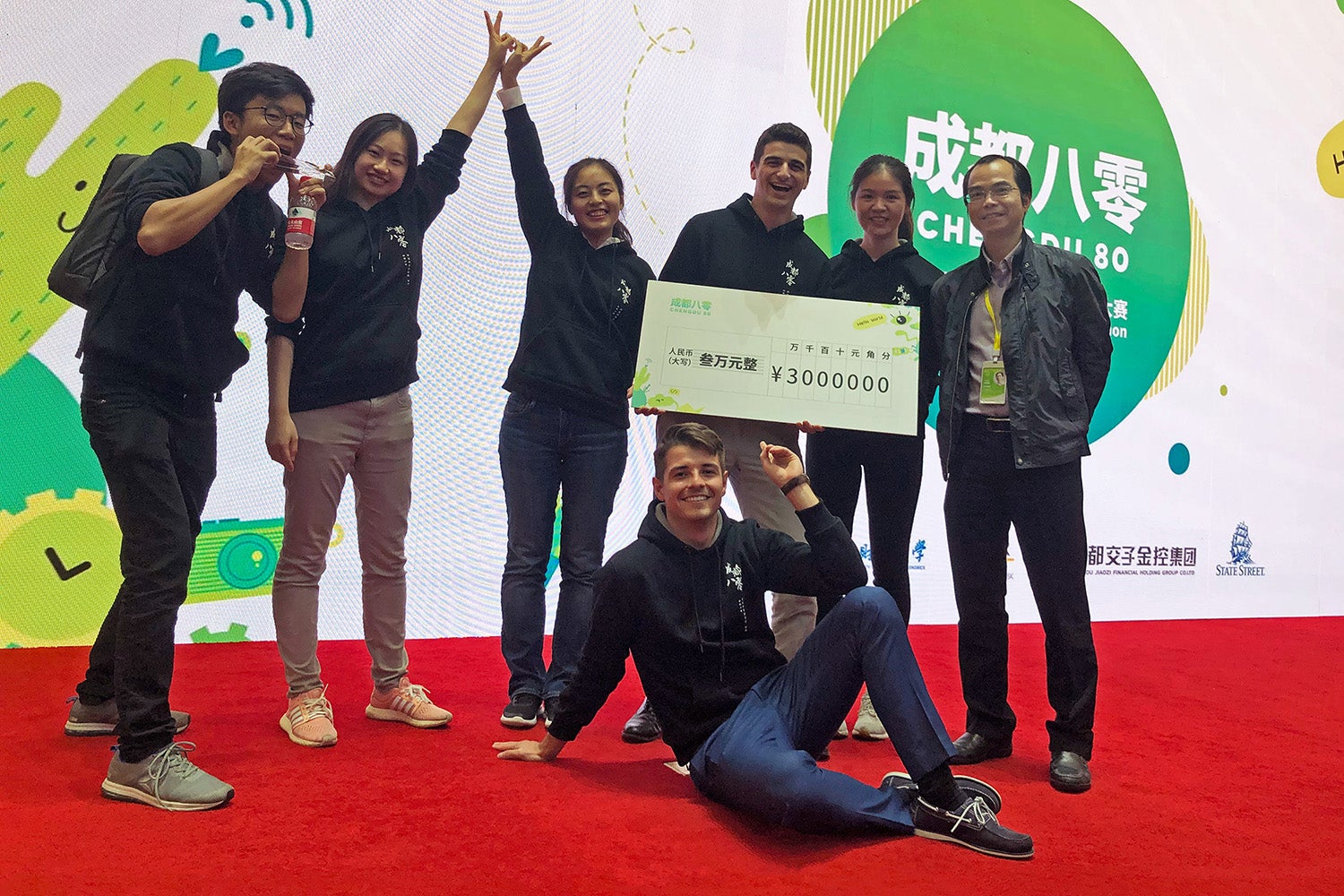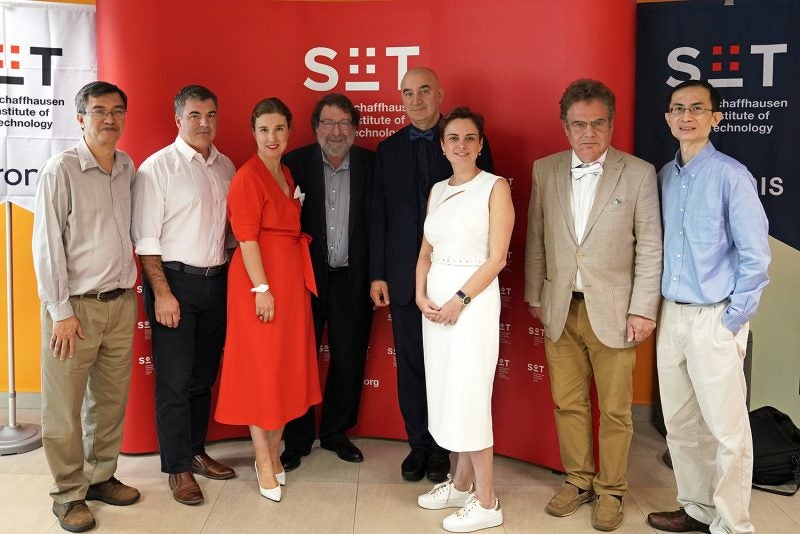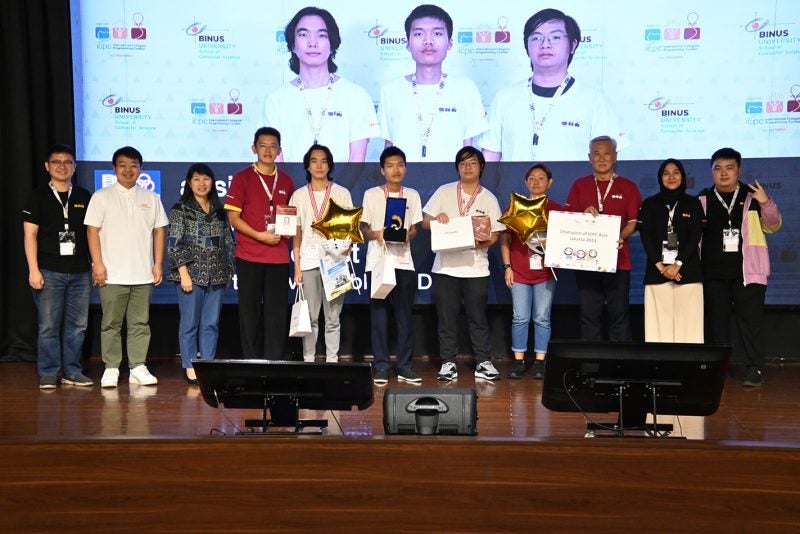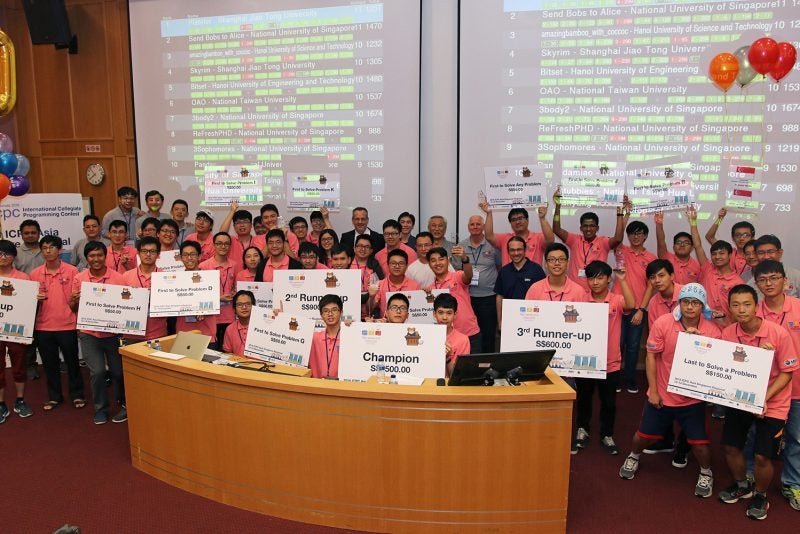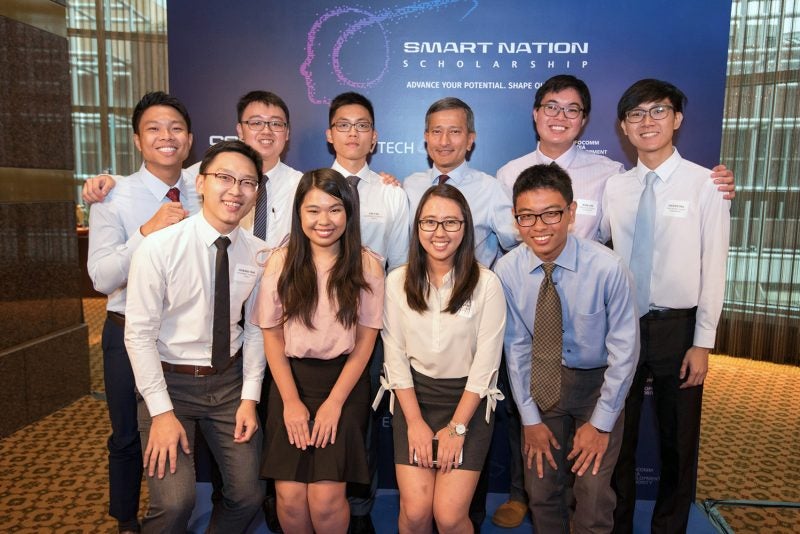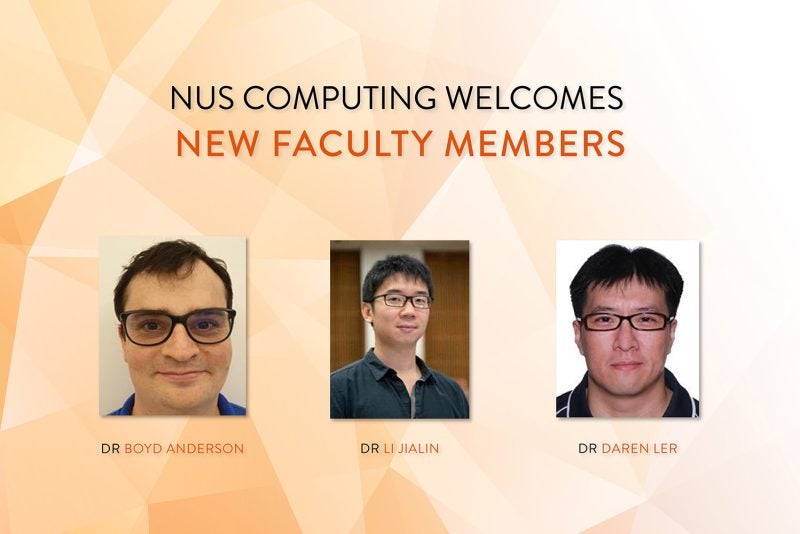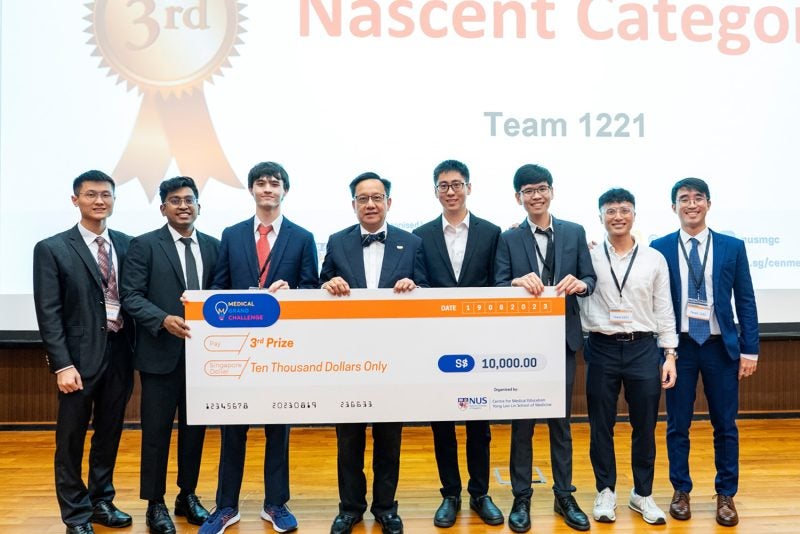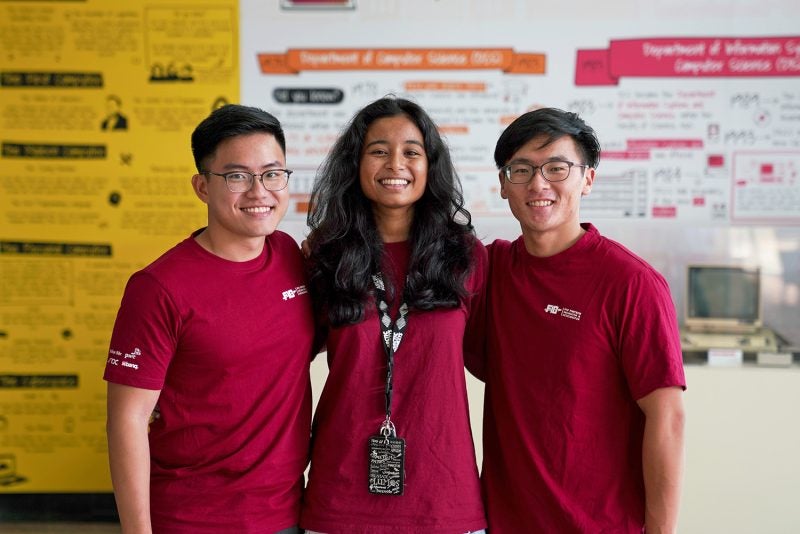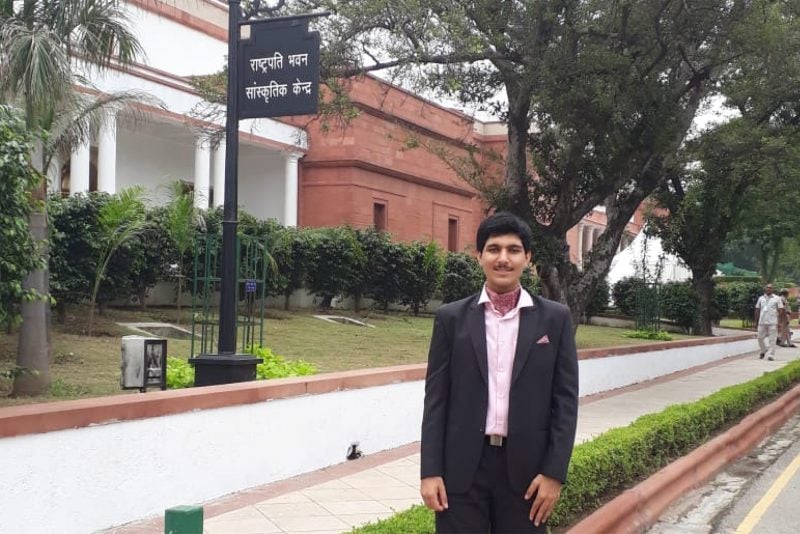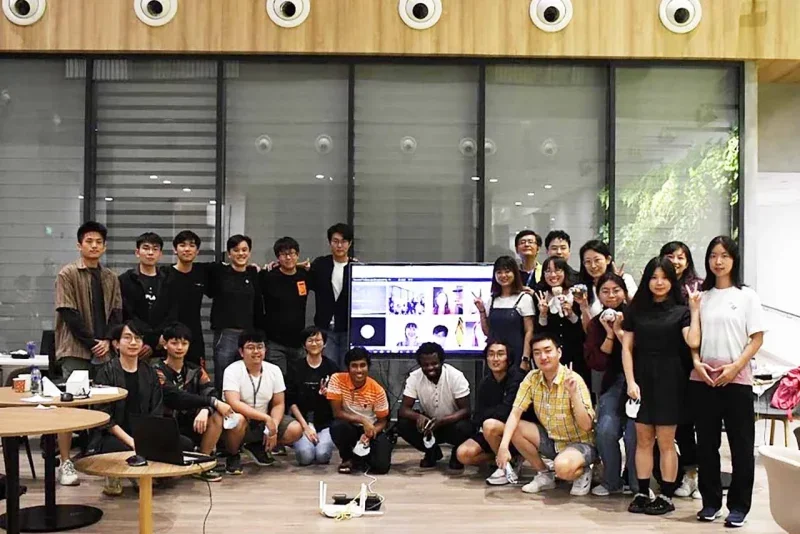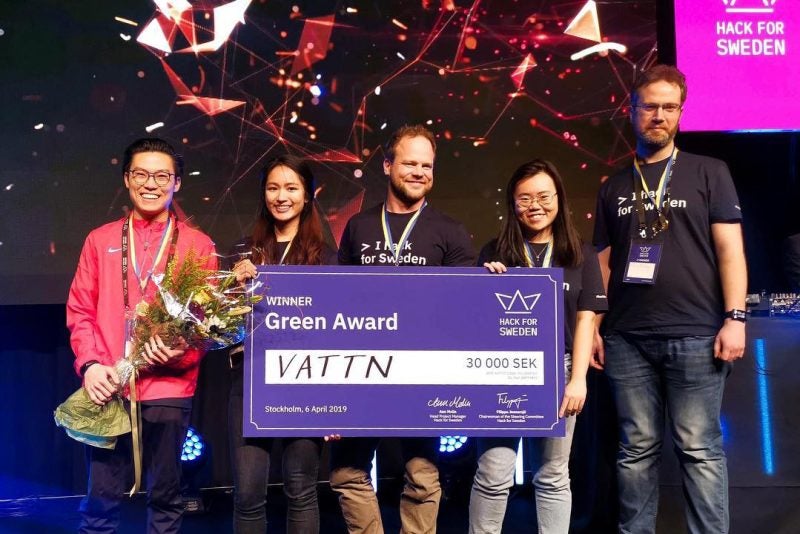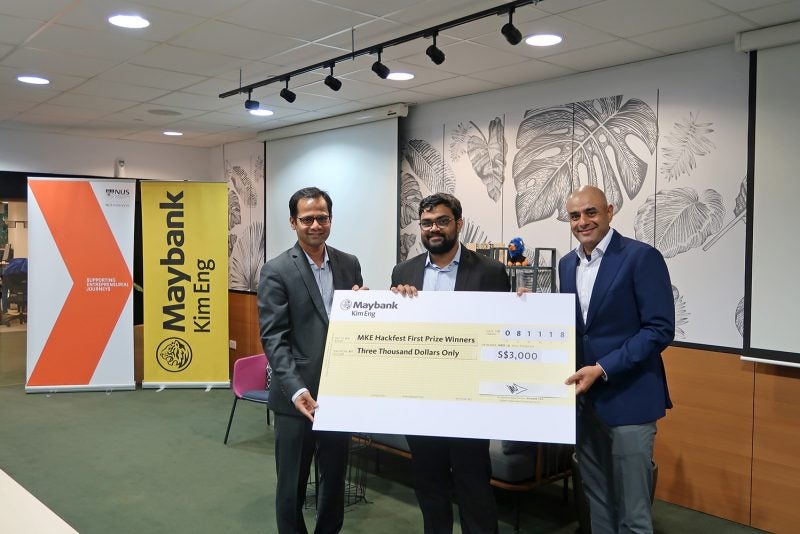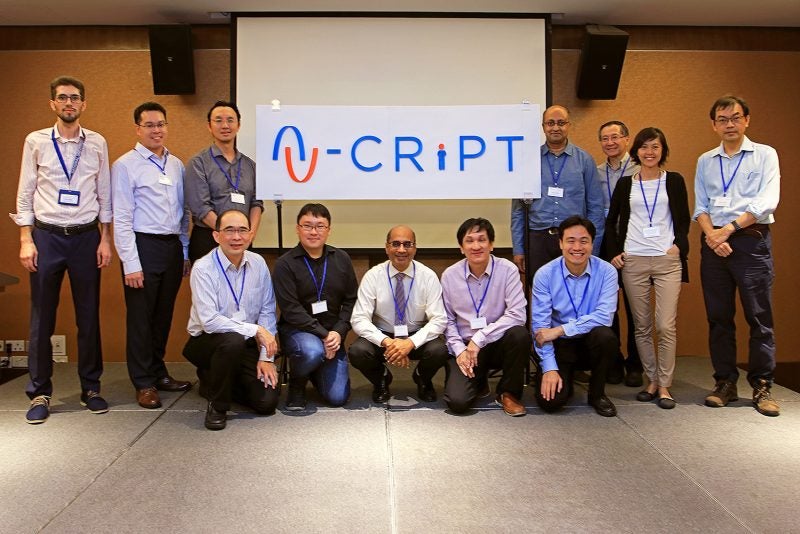5 December 2019 – A team of four Master of Science in Business Analytics (MSBA) students and two undergraduate NUS Computing exchange students won the first runners up prize at the Chengdu 80 Financial Technology (FinTech) competition held from 28 October to 3 November in Chengdu, China.
MSBA students Jonathan Wagner, Hua Xiuping, Liu Tong and Chen Yanzhu, with NUS Computing exchange students Park Jinseo and Peter Solimine, were one of eight university teams in the FinTech design and development competition. The team won the Pioneer Award for coming in second and received a cash prize of RMB 30,000.
Chengdu 80 FinTech competition is part of an annual FinTech conference hosted by the Chengdu-based Southwestern University of Finance and Economics (SWUFE) and the Berkeley University’s Consortium for Data Analytics in Risk (CDAR). This year’s competition focused on the use of data science in a FinTech setting. Teams were tasked to solve one of the four given problem statements by building a working prototype of the solution within eighty hours.
Over the course of the competition, the NUS Computing team designed and built an intuitive search engine for users to search for finance academic researchers based on a given name or research topic.
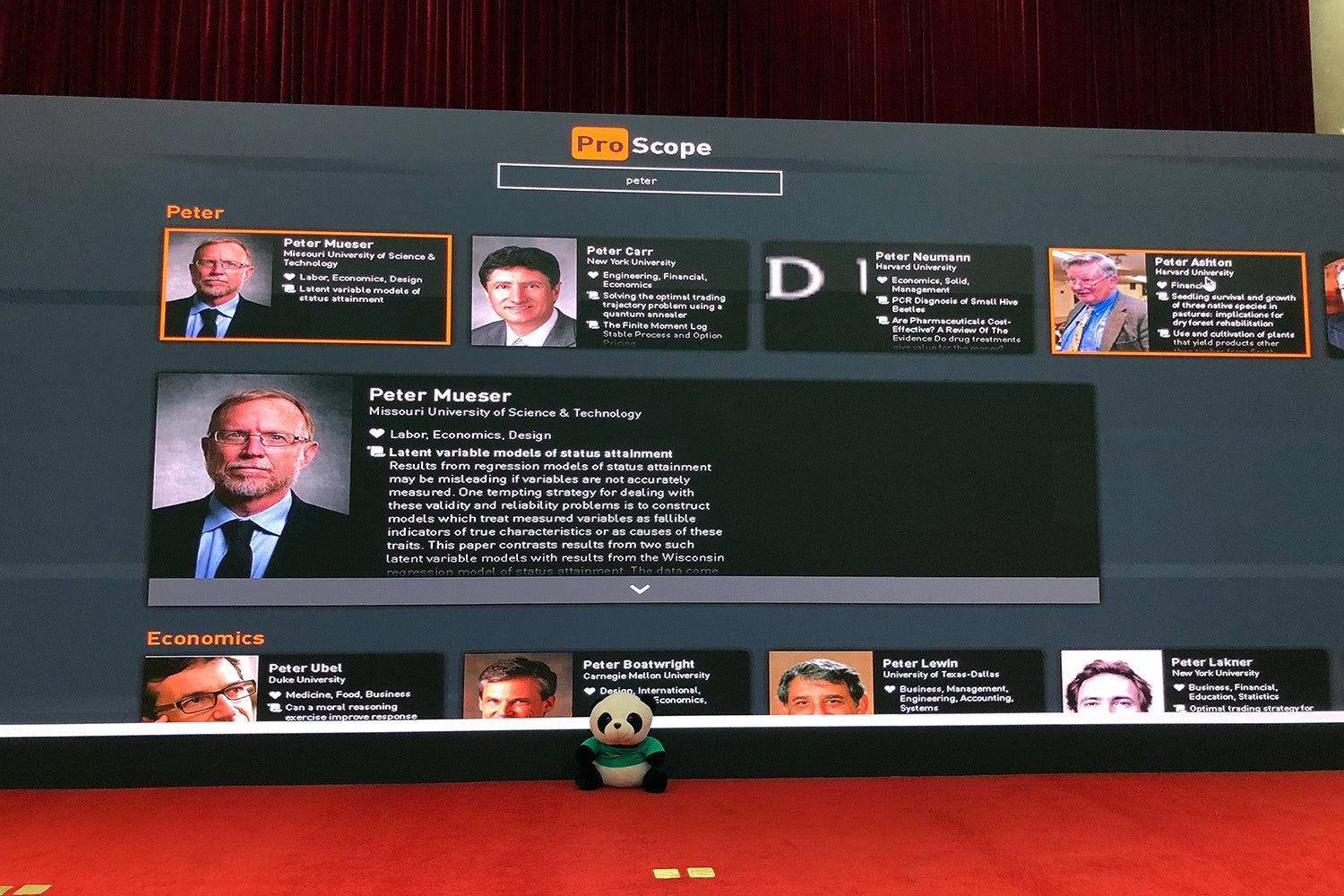
The team’s search engine prototype ProScope was designed to help small and medium enterprises (SMEs) start research collaborations. “SMEs usually lack the academic connections to find researchers in the field they wish to explore,” explained Jonathan, on behalf of his team. “In addition, SMEs are usually deterred by the high transaction cost of starting a formal research collaboration due to their limited budget.”
“Furthermore, the growth of public research grants have been stagnating and researchers are becoming more dependent on corporate collaboration,” Jonathan added. “Hence, we created ProScope to overcome these challenges and change the way academic funding is raised.”
To develop their search engine, the team used a variety of data science techniques to filter and clean the dataset provided by the organisers. The team also designed a seamless management system within ProScope that helps facilitate contract agreements and transactions between both parties. After a user has defined their interested research topic or researcher, parties interested in the collaboration opportunity can submit their research proposals through the system. A digitally signed blockchain smart contract will be created automatically once an agreement between both parties have been reached.
By integrating blockchain technology into ProScope, the team was able to significantly reduce transaction costs as all funding transactions will be facilitated by blockchain – instead of a third party establishment. “The fact that we chose to not only solve the given task but to solve a real business problem gave us a competitive advantage. While other teams had brilliant ideas and utilised the latest technologies, our choice to focus on the business case instead of the technical aspect helped us stand out among the strong competition,” said Jonathan.

